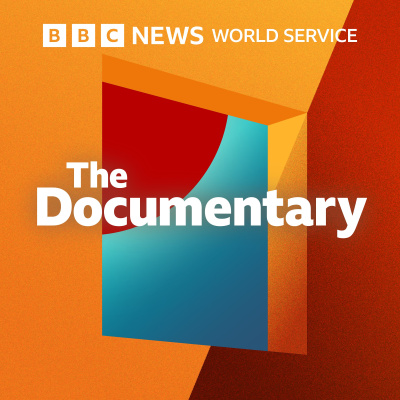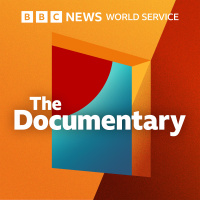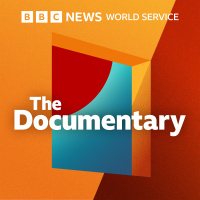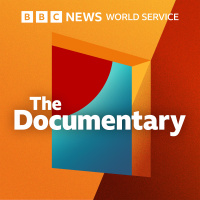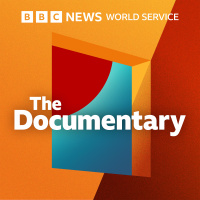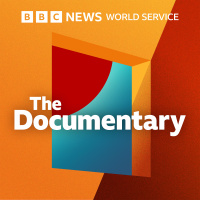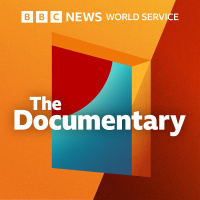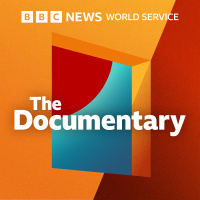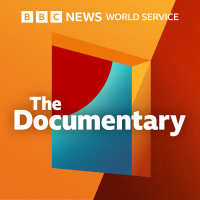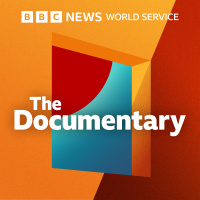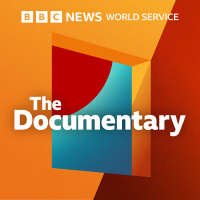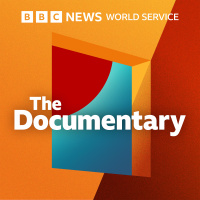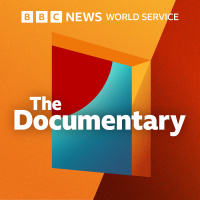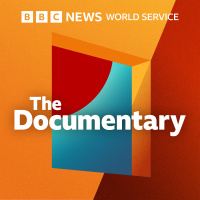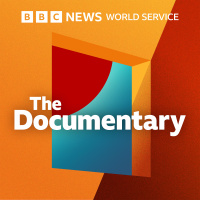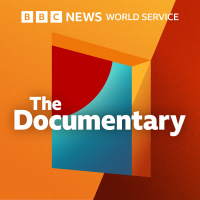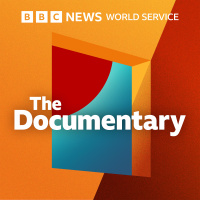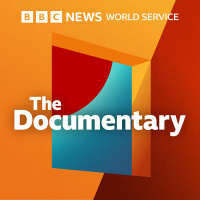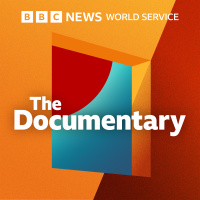Synopsis
The best of BBC World Service documentaries and other factual programmes.
Episodes
-
Looking for love: The Zoroastrian way
22/10/2019 Duration: 27minThe Zoroastrian community has given the world Freddie Mercury, produced some of India’s richest businessmen and practises one of the world’s oldest religions, Zoroastrianism. Yet the community faces extinction: there are less than 200,000 Zoroastrians left worldwide. Shazneen is one of them. She is 31, lives in London and is on the lookout for someone to settle down with. The problem? Members of her small community can only marry other Zoroastrians.
-
Super Sisters
20/10/2019 Duration: 50minIn 1979 a young girl named Melissa Rich asked her mother Lois why there were no women trading cards. So Lois decided to produce her own set called “supersisters”, 72 trading cards highlighting inspirational women, many of whom were athletes. Exactly forty years later we reunite Melissa, Lois and some of the supersisters together for a discussion based on the cards and the importance - and establishment - of icons in women’s sport in front of a live audience at the Lower Eastside Girls Club of New York.
-
Argentina’s ‘white gold’ rush
17/10/2019 Duration: 27minAre lithium-powered electric vehicles as ‘green’ as we think they are? With the advent of electric cars, manufacturers tell us we’re racing towards a clean-energy future. It’s lithium that powers these vehicles. Most of the world’s stocks of this lightest of metals are found in brine deep beneath salt flats, high in the Andes.In Argentina, in Jujuy - the province with the highest percentage of indigenous households in the country - massive projects are underway. But in a super-dry region, with water the most precious resource, and lithium extraction demanding huge quantities of it, there’s anxiety - and outright opposition. Presenter / producer: Linda Pressly Producer in Argentina: Gert De Saedeleer(Image: Tomasa Soriano keeps goats and llamas – she believes there’s less water locally since the lithium miners arrived. Credit: BBC/Linda Pressly)
-
The Gospel of Wealth
16/10/2019 Duration: 27minWhat should billionaires do with their money? The world’s greatest philanthropist, Andrew Carnegie said they should give it all away. Andrew Carnegie was born in Scotland and moved to America where he became a steel magnate and the richest man in the world. In his guidebook to philanthropy, The Gospel of Wealth, he challenged people who acquired great wealth to give it back to the community. He also believed the most important cause to support was education. Former UK Prime Minister Gordon Brown asks why today’s billionaire philanthropists aren’t giving away more money and why education is no longer the top priority.
-
My personal history of sormeh
15/10/2019 Duration: 27minThe eyes have always been a focal point of Persian beauty for men and women and they have always been embellished with sormeh, or thick black eyeliner. Presenter Nassim Hatam's grandmother taught her mother how to apply sormeh, which originates from a 4000-year-old recipe, and when the family was scattered to the four winds by revolution she made it her responsibility to supply the family women with their sormeh wherever they had settled. Now for Nassim, and millions of modern Persian women, the wearing of sormeh or black eye makeup has become something much bigger than make-up – it is an important part of their resistance to oppression.
-
Cuba's digital revolution
13/10/2019 Duration: 49minA revolution is underway in Cuba. The country’s communist leaders, who normally retain tight control of the media, have encouraged Cubans to become more connected online. Internet access used to be the preserve of a privileged (and relatively rich) few. But prices have come down, public wifi spots are popular, and less than a year ago 3G data access became available on Cuban phones. Along with a huge uptake in the internet has come a flood of Cubans signing up to social media accounts. Even President Miguel Diaz-Canel is on Twitter. And unlike staid and traditional state-run media, Cuban social media is relatively open, freewheeling, full of jokes, criticism of the government and, of course, memes. Prices are still high and the government keeps a close eye on dissidents or “counter-revolutionaries”. But online, Cubans are exploring new ways to communicate that would have been unheard of just a few years ago. The BBC’s Cuba correspondent Will Grant and BBC Trending reporter Reha Kansara have been meeting the C
-
Nigeria: sex for grades
10/10/2019 Duration: 26minUniversity lecturers sexually harassing and blackmailing their students. It's a problem which plagues West Africa but it's almost never proven. Until now. This week Assignment teams up with the World Service investigative series, Africa Eye, which sent female journalists posing as students inside a top university in Nigeria to secretly record men who sexually harass and abuse young women. A year-long investigation reveals how lecturers - who can make or break academic careers - groom victims in academic settings; abusing their power to try to get what they want. Sex for grades is described as being so normalised it has become an epidemic, where vast numbers of young women have been harassed and abused.Presenter: Kiki Mordi Producer: Jim Frank Editor: Hugh Levinson(Image: Presenter - Kiki Mordi. Credit: Charlie Northcott/BBC)
-
Translating for mum and dad
09/10/2019 Duration: 27minAcross the UK, in supermarkets, hospitals, council houses and solicitors’ offices, children and young people are doing vital unpaid work: interpreting for their parents. Psychologist and former child migrant Humera Iqbal takes us inside the lives of Britain’s young translators as they try to make the most of their childhood and teenage years while shouldering adult responsibilities – from dealing with the landlord to taking mum for a smear test.
-
Passport to paradise
08/10/2019 Duration: 27minCitizenship is changing; and half the world’s governments are making money through citizenship schemes. In Vanuatu, a tiny Pacific Island Nation, a blossoming and controversial passport scheme is in place. Vanuatu’s government says it needs the revenue to boost the weak economy, but many are asking why the money from passport sales does not seem to have trickled down, while growing Chinese influence in the region is becoming a common cause of concern.
-
Undercover with the clerics: Iraq’s secret sex trade
03/10/2019 Duration: 26minMuslim men and women are forbidden to sleep together outside marriage, but in Iraq, it’s possible for men to find a way round this obstacle to sexual freedom through a deeply controversial custom. So-called 'pleasure marriages' allow time-limited wedlock, sometimes for as little as half an hour, and with no commitment whatsoever. The practice is illegal, though some Shi’a clerics nevertheless claim it is permitted under Sharia, and offer to oversee pleasure marriages in return for payment. As Nawal al-Maghafi of BBC Arabic discovers in this disturbing story, the clerics’ lucrative business comes at enormous personal cost to many women, who are often tricked and coerced into marrying, only to be dumped shortly afterwards. Worse, their life-chances and even their lives are put at risk, because virginity is a prerequisite for proper marriage. Using undercover reporting and secret recording, the programme also finds clerics willing to supply women for sex, and even to officiate for men who want to have sex with c
-
How to buy your own country
01/10/2019 Duration: 27minCitizenship is changing; and half the world’s governments are making money through citizenship schemes. We investigate the booming trade in passports, and in a rare interview with the boss of the world’s biggest citizenship brokerage, we hear how easy it can be to get a second – or third – passport, for the right price.
-
America's child brides
29/09/2019 Duration: 51minA tense debate is taking place in states across America. At what age should someone be allowed to marry? Currently in 48 out of 50 states a child can marry, usually with parental consent or a judge's discretion. In 17 states there is no minimum age, meaning in theory, a two year old could marry. But there is a campaign to change the law and raise the minimum age of marriage to 18 without exceptions across all American states.
-
Chile’s Stolen Babies
26/09/2019 Duration: 27minA Chilean man - adopted at birth and sent overseas - searches for the mother forced to give him up. He is among thousands now finding out the truth about their past. Many mothers were pressurised into giving up their children during General Pinochet’s military dictatorship in the 1970s and 80s. A government investigation is gathering evidence from judges, socials workers, medical staff and nuns who are all thought to be involved. Families are meeting after decades. And mothers are being reunited with children they were told were dead. (Image Mans Backman. Credit: Family photo)
-
The imam and the artist
24/09/2019 Duration: 28minOn 27 September 1969, Imam Abdullah Haron – an outspoken Muslim cleric in South Africa – died in police detention. Abdullah Haron was the only Muslim cleric in Cape Town who used his sermons to speak out against apartheid policies and laws. His family do not accept the official conclusion that he fell down the stairs. And, to mark 50 years of his death, they want the government to commission a new inquest, which they say will uncover torture and murder. At the centre of the family’s renewed push for justice will be a series of artworks by visual artist Haroon Gunn-Salie.
-
World War Two: The economic battle
22/09/2019 Duration: 50minThe story of World War Two is usually told in terms of heroism on the battlefield, but perhaps the most important struggle was the economic battle. Across the world countries were fighting to feed their populations, maximise production from their factories and fund their armies. To mark the 80th anniversary of the start of World War Two, economist Duncan Weldon examines how the economies of the European powers, the United Kingdom, Germany, France and the Soviet Union, set the scene for the conduct of the war in 1939 and 1940.
-
The bitter song of the hazelnut
19/09/2019 Duration: 26minEvery August tens of thousands of Kurdish migrant workers, including children, toil long hours for a pittance in the mountains of northern Turkey picking hazelnuts for the spreads and chocolate bars the world adores. Turkey provides 70% of all hazelnut supplies – and the biggest buyer is Ferrero, maker of Nutella and Kinder Bueno. The confectionery giant says it’s committed to ethical sourcing, and aiming for its hazelnuts to be 100% traceable next year. But how is that possible in Turkey, with its half a million tiny family orchards, where child labour is rife? Tim Whewell investigates Ferrero’s complex supply chain and finds that while hazelnuts are celebrated in Turkish culture and song, it’s a sector where workers and farmers feel increasingly unhappy and reform is very hard to achieve. (Image: Hazelnut picker on Turkey’s Black Sea coast. Credit: Reyan Tuvi)
-
Living with leprosy
17/09/2019 Duration: 26minWhen Aleks Krotoski was six years old she lived in a world surrounded by people with leprosy, or Hansen's Disease as it's officially known. Both her dad and step mum worked at the US's last leper home, the National Hansen's Disease Centre in Carville Louisiana, tucked away in a bend of the mighty Mississippi. Today she makes a return journey to find out if the stigma of leprosy still exists and how the disease is being treated.
-
Colombia’s kamikaze cyclists
12/09/2019 Duration: 26minPrecipitous mountain roads, specially-modified bikes, and deadly consequences. Simon Maybin spends time with the young men who race down the steep roads of Colombia’s second city Medellin. Marlon is 16 and he’s a gravitoso - a gravity biker. He hooks onto the back of lorries or buses climbing the precipitous roads to reach high points around the city. Then, he lets gravity do its thing and - without any safety gear - hurtles back down the roads, trying to dodge the traffic. This year, two of his friends have died gravity biking and Marlon has had a near-fatal accident. But he’s not quitting. So what drives young men like him to take their lives into their own hands? And what’s being done to stop more deaths? Presenter/producer: Simon Maybin (Image: Marlon with his bike ready to ride back down into Medellín. Credit: Simon Maybin/BBC)
-
Hearing me
10/09/2019 Duration: 26min(This programme contains audio effects that may cause discomfort to people living with hearing conditions. There is a modified version of this programme, with quieter effects, on this page https://bbc.in/2TrInga) What does life sound like for someone whose hearing has suddenly changed?
-
Robert Mugabe: A life
06/09/2019 Duration: 26minAudrey Brown looks back at the life of the former Zimbabwean president, Robert Mugabe, who has died in Singapore aged 95.
